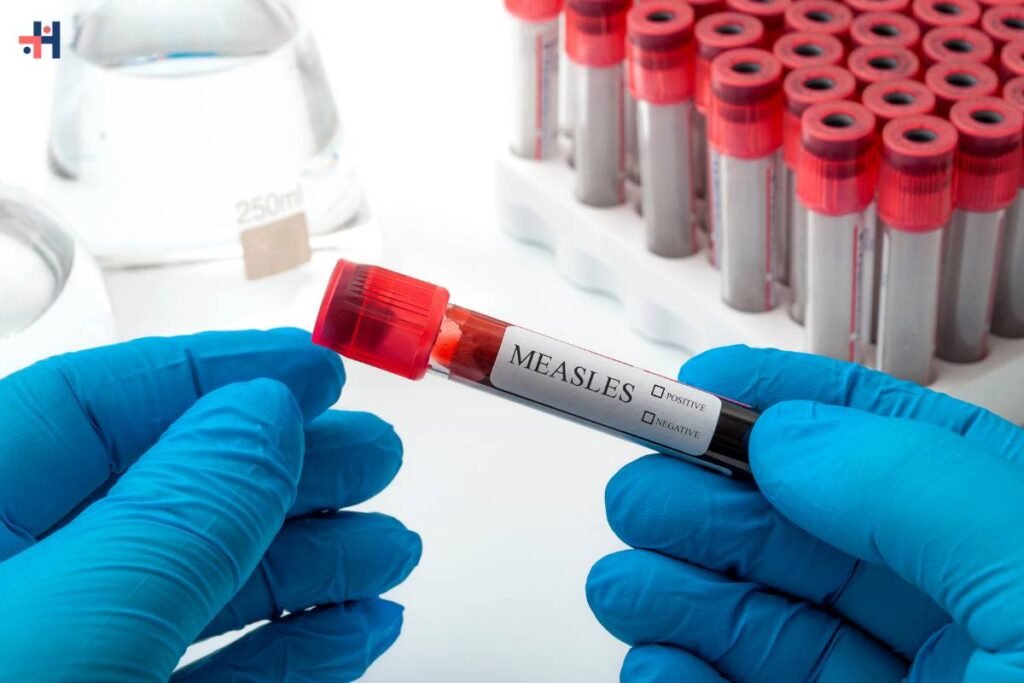Amidst a concerning surge in measles cases across pockets of the United States, health officials are sounding the alarm on the escalating threat posed by the resurgence of this highly contagious but preventable disease. The recent uptick in measles cases serves as a stark reminder of the risks associated with the growing anti-vaccine sentiment prevailing in certain communities.
Rising Cases
According to preliminary data from the Centers for Disease Control and Prevention (CDC), the number of measles cases reported this year has already surpassed the total count recorded in 2023. While precise figures are yet to be disclosed, health authorities anticipate a significant increase in measles cases, fueled by a surge in global measles outbreaks and springtime travel to regions grappling with heightened transmission, such as Britain.
Dr. Manisha Patel, Chief Medical Officer at the CDC’s Respiratory Disease Division, underscores the highly contagious nature of measles, emphasizing its potential to rapidly spread among unvaccinated individuals. With each infected person capable of transmitting the virus to as many as 18 others, measles poses a formidable challenge to containment efforts, particularly within densely populated settings like homes, schools, and childcare facilities.
Outbreaks across States
Several localized outbreaks have already been identified, underscoring the urgency of swift intervention and heightened vigilance:
- In Chicago, an outbreak originating from a migrant shelter has escalated to 13 confirmed cases, prompting the deployment of CDC teams to contain the spread.
- Florida has reported seven measles cases among elementary school students, prompting concerns over vaccination coverage and school attendance policies.
- Southwest Washington and Arizona have also witnessed localized outbreaks, with unvaccinated individuals bearing the brunt of measles infections.
Vaccine Hesitancy and Pandemic Impact
Experts attribute the resurgence of measles to a combination of declining vaccination rates and the disruptive effects of the COVID-19 pandemic on routine immunization efforts. Dr. Saad Omer from the O’Donnell School of Public Health at U.T. Southwestern highlights the susceptibility of unvaccinated populations to measles transmission, underscoring the urgent need for comprehensive vaccination campaigns.
While measles-related mortality remains relatively low in countries with robust immunization programs and healthcare infrastructure, severe complications such as pneumonia and encephalitis can lead to fatalities, particularly among vulnerable populations. However, the rarity of widespread measles outbreaks has contributed to a lack of awareness among healthcare professionals and the general public, potentially delaying timely recognition and containment efforts.
Also Read: Measles Cases Soar in Europe, Prompting Urgent Action
Preparedness and Response Challenges
Dr. Christine Hahn, State Epidemiologist of Idaho, acknowledges the looming challenges posed by potential measles outbreaks, particularly in regions with limited recent exposure to the disease. The resurgence of measles underscores the importance of bolstering preparedness and response measures to effectively mitigate the impact of future outbreaks.
Before the advent of widespread vaccination programs, measles wreaked havoc globally, claiming millions of lives annually. Its debilitating effects on the immune system rendered individuals susceptible to secondary infections, further exacerbating the disease’s toll on public health.
As measles cases continue to rise, concerted efforts are imperative to address vaccine hesitancy, promote immunization awareness, and reinforce public health infrastructure to mitigate the risk of future outbreaks. Vigilance, proactive measures, and community engagement are essential in safeguarding public health against the resurgence of preventable diseases like measles.









